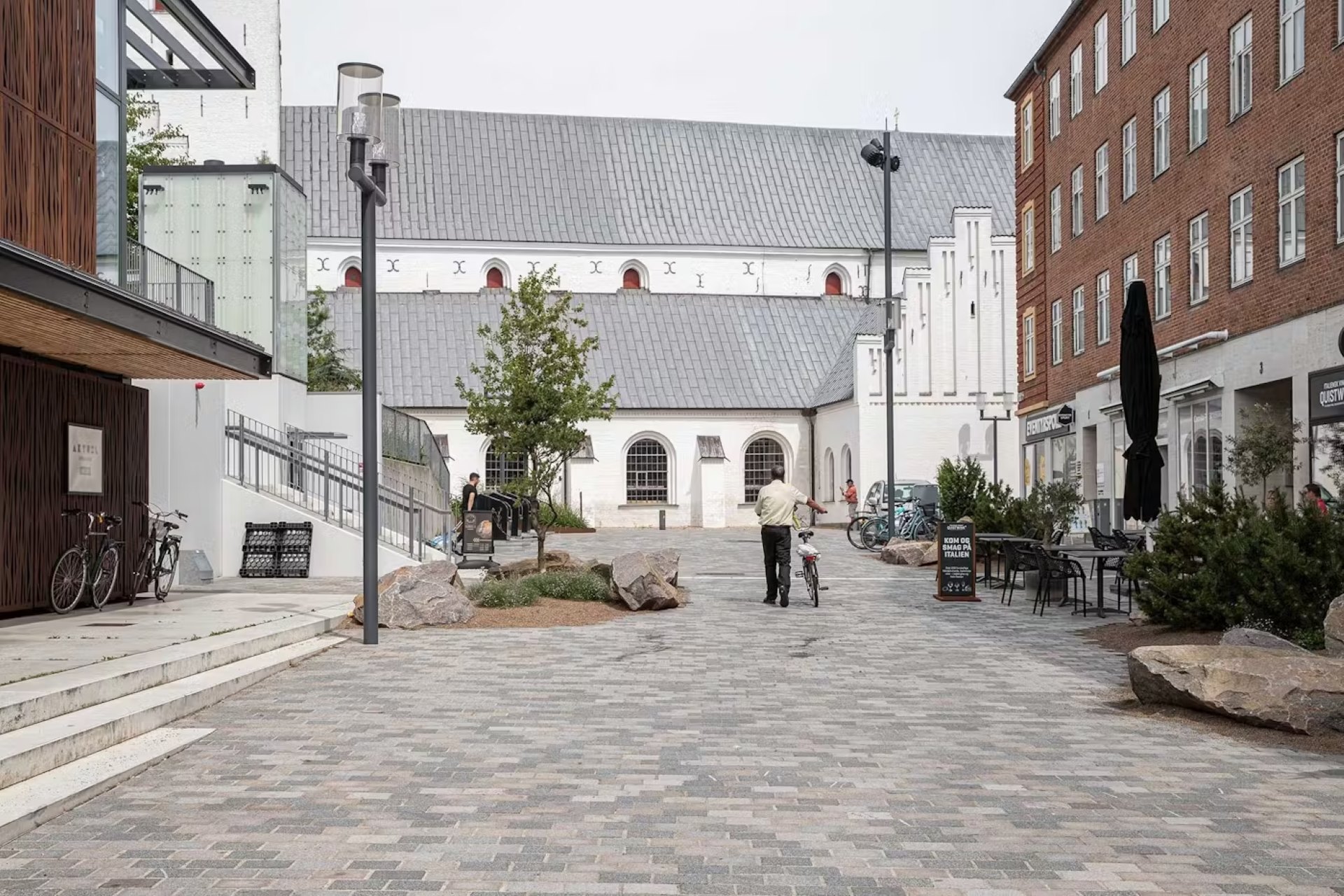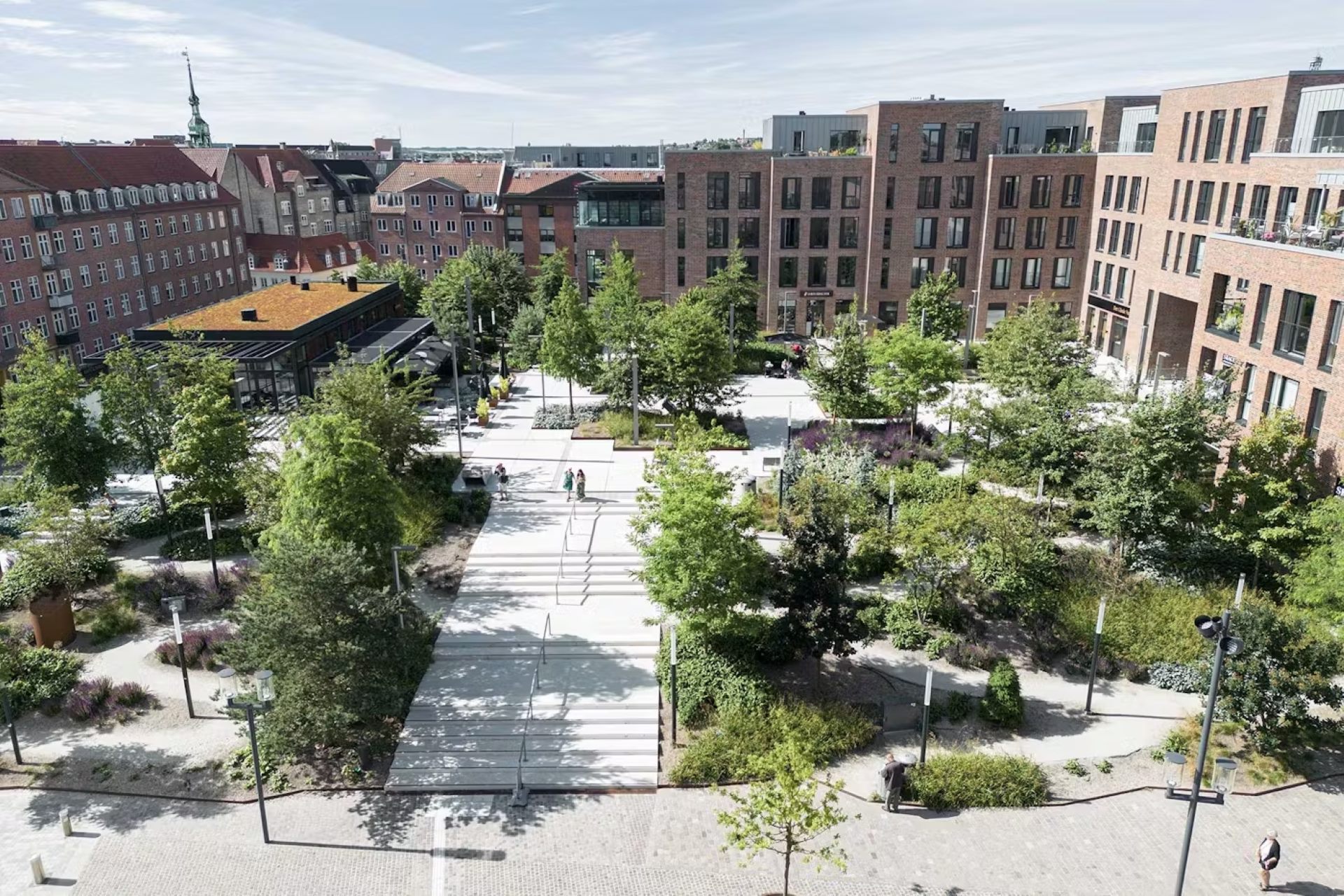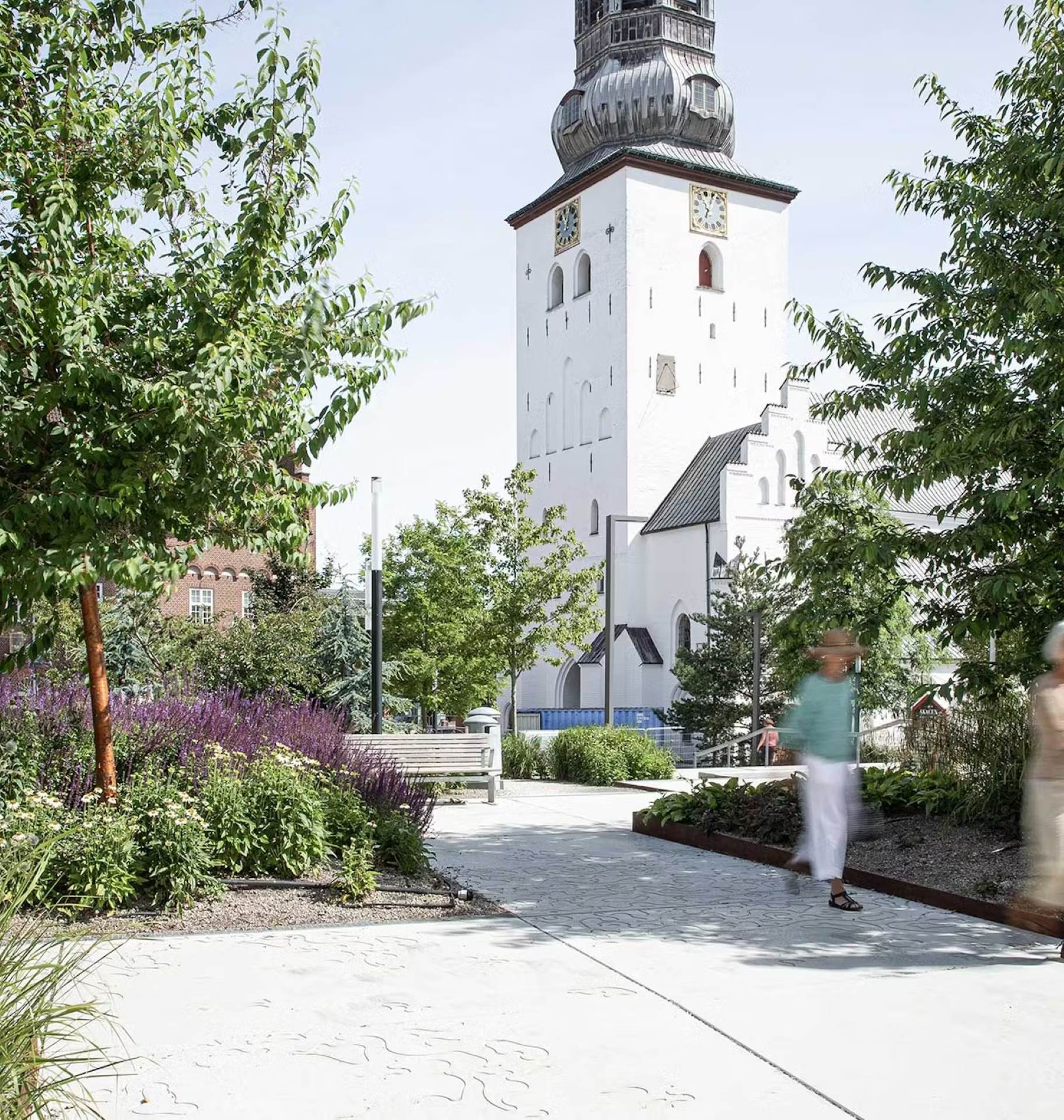The City of Aalborg Champions Collective Solutions at the Local Level
The Mayor of Aalborg, Denmark, host of the European Conference on Sustainable Cities and Towns, talks environmentalism in local governance
The Danish city of Aalborg and ICLEI Europe are getting ready to host the 10th edition of the European Conference on Sustainable Cities and Towns (ESCT), set to take place on 1-3 October. This landmark event promises to bring together over 1,000 participants from across Europe, including local and regional governments, international institutions, businesses, and civil society organizations. Wolfgang Teubner, ICLEI Europe Regional Director, highlighted that “Local governments have a seat at the decision-making tables. Now, it is time for local governments to walk through those open doors and take more responsibility and be equipped with the financial and political power to do so.” REVOLVE gets the details from Lasse Frimand Jensen, mayor of Aalborg and host of the conference, on the impact of regions, partnership-based approaches, and alternative solutions.
How can local and regional governments take part in the sustainable transition?
Local and regional governments are at the heart of the sustainable transition! We are closest to the citizens and businesses and can form the transition in a close dialogue ensuring cohesiveness. That is why it is so important that we are given the right framework conditions, both from national governments and from the EU.

How does Aalborg’s partnership-based approach tackle climate change?
I think that it is only through this partnership-based approach that we enter a trusting, solution-oriented relationship. We agree that we are in the same boat and that only by working together can we actually achieve any change. That is why we tackle climate change through collaborative partnerships for action. Only by committing each other to do actual action and supporting each other can we reach common goals. This is our strength, but as it is in all relationships, it takes work to maintain this trust, especially since we in the local governments cannot always move as fast as our partners want us to.
How has the municipality developed with this environmental focus?
We have recently electrified all the buses in our public transportation system as well as established a BRT line, which have been huge successes. But we are also focusing on active mobility, specifically getting school kids back to riding their bikes to school. This entails creating safe school roads, enabling parents to choose the more sustainable means of transportation for them. Regarding expanding green spaces, I would like to highlight Budolfi Square. Here, our focus has been to create an attractive green urban space, where mobility for pedestrians and cyclists is given priority in a high-quality urban area. The greenery, playground, surrounding benches and small shops and restaurants have turned it into a place for meeting up and spending time with family and friends. Additionally, rainwater collected from Budolfi Square is repurposed for irrigating the plants, which further helps green spaces to flourish.

Could you expand on the importance of climate partnerships across communities? Which communities do you work with to prioritize climate action?
We have created Climate Partnerships across a wide range of communities. We are working closely with and supporting our SMEs, but we have also focused on housing associations as well as cultural and educational institutions. But the focus for our work is the industry and agricultural sector. This is where the major emissions come from in our municipality, so this is where we need to engage in partnerships to transform our local ecosystem to a sustainable business environment. It is essential for Aalborg as well as for Denmark to phase out the utilization of fossil fuels and to make a more sustainable food sector.
It was, for us, a no-brainer to host this conference, celebrating the 30th anniversary of the Charter. But it is also an opportunity for us to retake the pledge to keep working as hard as possible to push the sustainable agenda.
What inspired you to nominate the city or advocate for Aalborg to host the conference?
We have had sustainability anchored deep in the core of our DNA since 1994, when we hosted the very first European Conference on Sustainable Cities and Towns. The result of that conference – the Aalborg Charter – has played a pivotal role in our city’s development ever since. It was, for us, a no-brainer to host this conference, celebrating the 30th anniversary of the Charter. But it is also an opportunity for us to retake the pledge to keep working as hard as possible to push the sustainable agenda.

What has been a “success” for Aalborg, reflecting on its climate partnerships in the past?
The biggest success with the partnerships is the results the partners make. Right now, we have a wide range of local Climate Partners, who are all committed to deliver everything they can from hard-core CO₂ reductions to raising awareness and pushing our minds and habits in a greener direction! The municipal role is only to support and facilitate our local ecosystem to make their own transition, so the true success is when our citizens and our companies make sustainable actions. The municipality is just one of the mechanisms to help and push the transition on its way, but it is the climate partners who need all the credit for the local success in this regard.
What do you hope for the future of your city?
We are pushing the sustainable agenda on many fronts, and we are hoping that this holistic effort will have a positive effect on the future. We know that many cities and regions all over the world are doing the same. The window for action is still open, but it is a race against the clock, and we need collaboration across all sectors if we are to succeed. My hope for the future is that when we look back on this time, it is with a sense of pride, knowing that we all did what was needed. Of course, this is not very concrete, but it is our direction!
The 10th European Conference on Sustainable Cities and Towns (ESCT) conference on 1-3 October will feature a range of sessions designed to facilitate learning, collaboration, and inspiration. Plenaries will provide a platform for high-level discussions on key topics, while workshops will offer a more in-depth exploration of specific issues. Mobile sessions will allow participants to experience some of Aalborg’s successful sustainable initiatives first-hand. These sessions will provide valuable opportunities to see how theory is put into practice and to learn from real-world examples. For more information and to register for the conference, visit aalborg2024.eu.
